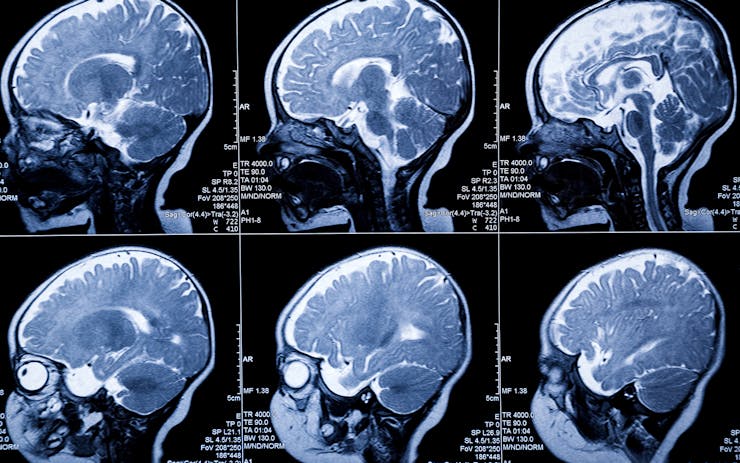Only five states specifically allow autism patients to legally access whole plant cannabis, so long as they get the appropriate doctor recommendations. The Arizona chapter of MAMMA, Mothers Advocating Medical Marijuana for Autism, is working hard to make their state the sixth on the list—and they’ll take their case to state officials in Phoenix today.
'Within 20 minutes of his first dose I saw it provide relief to my son.'
This will be the group’s second meeting with officials from the Arizona Department of Health Services (ADHS), which regulates the list of qualifying conditions. In early May, MAMMA members convened for three days with ADHS officials to consider the organization’s petition to let medical professionals recommend medical cannabis for autistic children.
The ADHS website lists nine medical conditions that currently qualify a patient for medical marijuana. Autism isn’t on that roster. And according to Brandy Williams, Arizona state chapter director for MAMMA, state officials at the previous hearing were far from sympathetic to MAMMA’s concerns.
“They said there are no clinical peer review trials that have been published on cannabis and autism,” she told Leafly, “but the same can be said for every single thing that we currently have on (the state’s) list. And then when we brought that up they said, ‘Well, our cannabis program was a voter initiative; the health department had no say in those conditions.’”
Autism as a Qualifying Condition
| Autism is a qualifying condition in these states: | Cannabis may be recommended by doctors for many conditions, including autism, in these states: |
|---|---|
| Delaware | California |
| Pennsylvania | Michigan |
| Minnesota | Massachusetts |
| Georgia | District of Columbia |
| South Carolina |
Stopping Her Son’s Seizures
Williams’ eight-year-old son Logan is autistic and was recently able to access medical cannabis. But that was only because he also suffers from seizures, one of the medical conditions that Arizona includes among its qualifying conditions.
“My son was banging his head 75 to 150 times per day,” Williams said. “Logan never sat still. We called him the Tasmanian Devil. He ripped off hinges on kitchen doors. Our front door, a metal door, had 30 dent marks from his head.”
Williams and her husband pawned their wedding rings and other valuables to purchase a pediatric cannabis card in Arizona, to get Logan his medically-approved cannabis oil.
“Within 20 minutes of his first dose I saw it provide relief to my son,” she said. “That night he fell asleep naturally. From there he said 180 words in the first two months, after being completely non-verbal. He’s making eye contact, can complete tasks, responds to thing s we say. He went to school this entire year, with only two minor incidents. And he’s now reading.”
Looking for Medical Marijuana in Arizona?Better Than Other Meds
Other Arizona parents see medical cannabis as a safer alternative to the anti-psychotic medications usually prescribed as treatment for children with severe autism.
Shop highly rated dispensaries near you
Showing you dispensaries nearKayla Roussel, a “new but fierce” member of Arizona MAMMA, has three young children on the autistic spectrum. She tried the anti-psychotic meds with her eight-year-old but had to stop after two weeks.
“It caused hallucinations,” she said. “It caused him to scratch his face until he bled. It made everything worse.”
Roussel said the previous hearing in May took an emotional toll on the MAMMA members. “The state attorneys essentially called us liars,” she said.
Williams recalled one of the Arizona state attorneys belittling MAMMA’s petition.
“He said, ‘You know this petition is too broad. I’m a little bit quirky and I wear glasses, does that mean I need cannabis?’ He basically painted this picture that most people on the autism spectrum are living normal lives and that this petition is way too broad, and that’s one of the reasons why they’re denying this.”
But at that point, Williams said she provided the state attorney with a study that shows 87 percent people on the autism spectrum live with their parents for the rest of their lives, and that most people on the autism spectrum qualify for social security disability.
“If autism isn’t debilitating I don’t know what is,” she said.
It isn’t a miracle, but it helps many many children and families have a better quality of life.
“There has been no miracle for our son. And yet,… https://t.co/qy3WWqnppm— MAMMAUSA (@MAMMA6630507) May 28, 2018
Parent Testimony Coming
When testimony resumes today, “our lawyer gets to cross examine the doctors from the state, and then the parent testimony will be read,” Williams said. “We haven’t even gotten to the parent testimony yet.”
The judge in the case then has 20 days to decide whether ADHS lawfully declined MAMMA’s petition.
For its part, ADHS officials said they can’t speak about a hearing in progress.
“ADHS accepts petitions to add a debilitating medical condition to the list of debilitating medical conditions for the Medical Marijuana Program in January and July of each year,” a department spokesperson said in an email to Leafly. “Detailed information about submitting a petition for the addition of a debilitating medical condition can be found online here A.R.S §36-2801.01 and here A.A.C. R9-17-106.”
Terrifying to See
“Our lawmakers, just because they don’t like [cannabis] doesn’t mean it’s not medicine,” said Williams. “And I guarantee you that us parents are going to do whatever it takes to get our children well. And they’re going to wear down before we do.”
“The autism community needs help,” said Kayla Roussel. “There are so many families struggling with kids who are hurting themselves and us, the people they love most. I was in a headlock yesterday. If (my sons) have the medication they need, we can live a somewhat functional, typical life. It is terrifying to see a little kid beating the crap out of their mom.”





